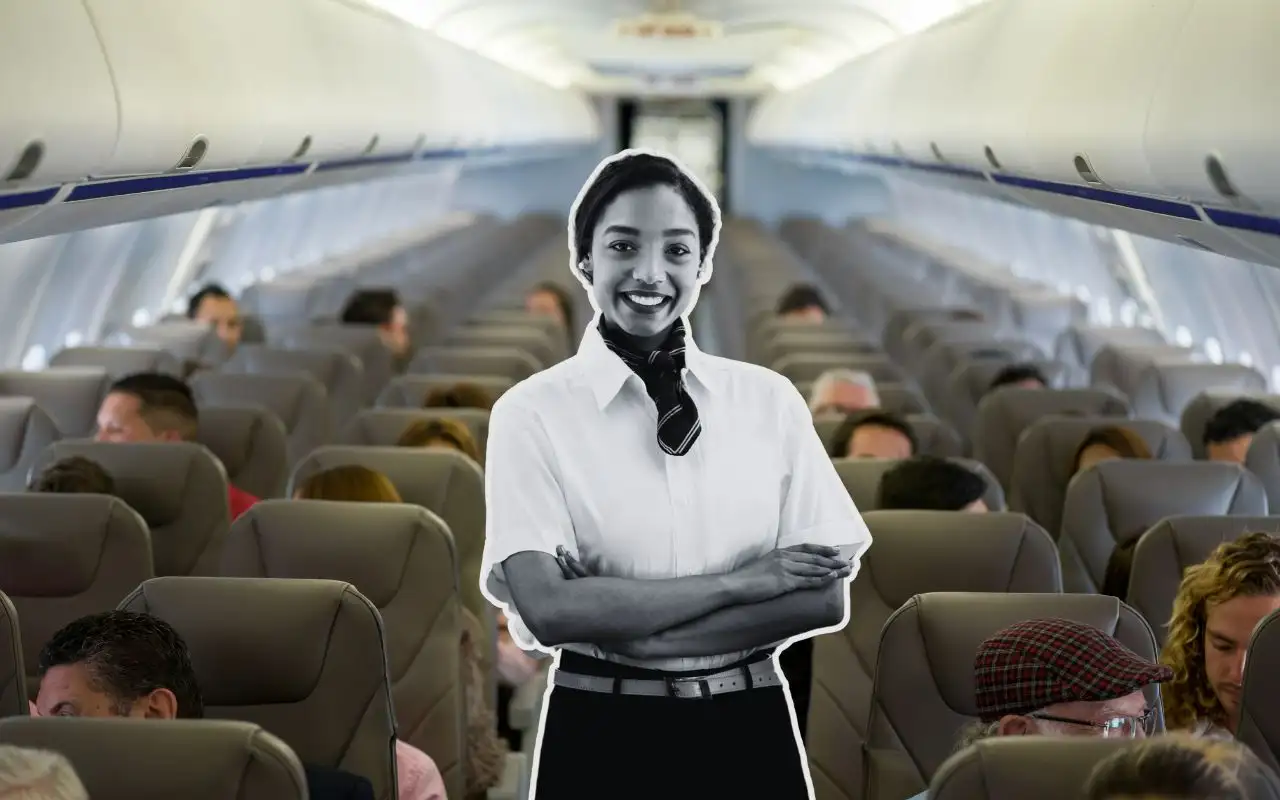The average annual salary for Flight Attendants in South Africa stands at R153,700 in 2024.
The salary range varies, with an entry-level Flight Attendant earning around R137,100, while those with 1-4 years of experience receive an average of R167,200.
Mid-career professionals, with 5-9 years in the field, earn approximately R160,000. Experienced Flight Attendants, boasting 10-19 years of expertise, command an average total compensation of R182,000.
The pay scale reflects a comprehensive package, including tips, bonuses, and overtime pay.
Factors that Influence A Flight Attendant Salary in South Africa
1. Airline & Route Network:
- Major Airlines: Flag carriers like South African Airways generally offer higher base salaries compared to budget airlines or regional carriers due to larger budgets and a premium passenger base.
- International vs. Domestic Routes: Long-haul international flights often pay more than domestic routes due to longer working hours and potentially higher service demands.
2. Experience & Seniority:
- Years of Service: Flight attendants receive salary increases based on their experience and seniority within the airline. More experienced crew may lead safety briefings, manage passenger issues, and receive additional allowances.
- Type of Aircraft: Operating larger or more complex aircraft like wide-body jets may command higher pay because of additional training and responsibility involved.
3. Qualifications & Languages:
- Additional Certifications: Holding certifications in First Aid, Emergency Response, or specific aircraft types can increase earning potential.
- Multilingualism: Fluency in additional languages, especially those spoken in key destinations, is valued for improved passenger communication and can lead to bonuses or better job prospects.
4. Hours Flown & Layovers:
- Total Flight Hours: The more hours flown, the higher the overall salary. However, exceeding safe fatigue limits is prohibited.
- Layover Locations: Layovers in expensive cities or tourist destinations may have lower allowances compared to cheaper locations, impacting total compensation.
5. Benefits & Allowances:
- Medical Insurance & Pension Plans: Some airlines offer comprehensive healthcare and retirement plans, impacting overall compensation packages.
- Meal Allowances & Travel Benefits: Meal allowances during layovers and discounted flight tickets for personal travel are common benefits that add to a flight attendant’s income.
6. Unionization & Collective Bargaining:
- Union Membership: Being part of a strong union can lead to negotiated salary increases, better working conditions, and protection from unfair practices.
- Collective Bargaining Agreements: Unionized flight attendants benefit from collective bargaining agreements that set minimum salary standards and other benefits.
7. Cost of Living & Economic Factors:
- Regional Variations: Flight attendant salaries can vary depending on the airline’s base of operation and the general cost of living in that region.
- Economic Performance: The overall economic performance of the airline and the aviation industry can impact salary adjustments and bonuses.
8. Individual Performance & Merits:
- Positive Performance Reviews: Consistently exceeding expectations in areas like safety, customer service, and teamwork can lead to bonuses or faster salary progression.
- Special Assignments & Leadership Roles: Taking on additional responsibilities like training new crew or leading safety demonstrations can lead to higher pay or promotional opportunities.
Education and Qualifications of A Flight Attendant in South Africa
1. Minimum Educational Requirement:
- A National Senior Certificate (NSC) with good passes in English and Mathematics is typically the minimum. Some airlines prefer higher degrees or diplomas, especially in tourism or hospitality.
2. Aviation Medical Class 3 Certificate:
- Mandatory medical assessment by a Civil Aviation Authority (CAA) approved doctor, ensuring physical fitness for the demands of the job.
3. Flight Attendant Training Course:
- Attending a CAA-approved training program covering safety procedures, first aid, emergency response, passenger handling, and aviation regulations.
4. Type Rating Training:
- Specific training on the types of aircraft operated by the chosen airline, including evacuation procedures and systems knowledge.
5. First Aid and Emergency Response Certifications:
- Additional certificates in Basic Life Support (BLS) and Advanced Cardiovascular Life Support (ACLS) demonstrate preparedness for medical emergencies.
6. Customer Service and Communication Skills:
- Training and experience in providing exceptional customer service, handling difficult situations, and communicating effectively with diverse passengers.
7. Language Proficiency:
- Although English is the primary language, fluency in additional languages, especially those spoken in frequent destinations, is highly valued and can improve job prospects.
8. Security Clearance:
- Meeting background checks and security clearance requirements set by the airline and the CAA for access to restricted areas and sensitive information.
9. Swimming Ability:
- Demonstrating the ability to swim a certain distance for emergency evacuation scenarios is a necessary physical requirement.
10. Personal Attributes:
- Strong interpersonal skills, teamwork, positive attitude, resilience, problem-solving skills, and adaptability are crucial for success in this demanding and dynamic role.

